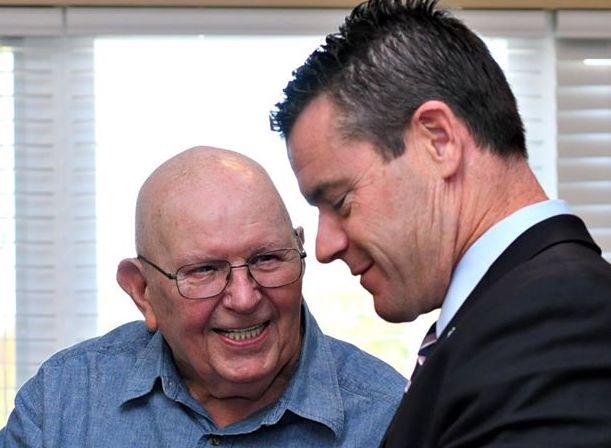Music therapy boosts your mood and memory by engaging your brain in powerful ways. It stimulates neural pathways, sharpening focus and easing anxiety with familiar tunes. You’ll feel stress melt into joy or calm as songs lift your spirits. For memory, melodies can reveal cherished moments, reconnecting you to your past. This therapy also fosters emotional bonds, helping you express tough feelings. Stick around to uncover even more incredible benefits of this healing art.
Key Takeaways
- Music therapy lifts mood by reducing anxiety and fostering joy through familiar songs.
- Familiar melodies trigger memories, helping individuals reconnect with personal history.
- Music stimulates neural pathways, enhancing cognitive processes like memory retention.
- Therapy sessions with tailored playlists ease depression and improve emotional well-being.
- Musical activities promote social engagement, combating loneliness and boosting mood.
The Science Behind Music and Brain Function
While you might think of music as just entertainment, it’s actually a powerful tool that directly impacts your brain’s function. When you play or listen to music, you’re stimulating neural pathways, enhancing cognitive processes like attention and problem-solving. This isn’t just theory; science shows music can rewire your brain, strengthening connections that aid in memory retention and focus. In settings like assisted living, music therapy can be incorporated into personalized care plans to enrich the lives of residents and support their emotional well-being. As someone dedicated to serving others, you’ll find this especially meaningful in settings like short-term care Kentland facilities. Here, you can use music to support patients’ mental sharpness during recovery.
Emotional Benefits of Music Therapy
As you explore the healing power of music, you’ll quickly notice its profound impact on emotions. Music therapy offers a unique way to lift spirits and ease anxiety, helping you support those in need. When you play a familiar song, you can see stress melt away, replacing it with joy or calm in someone’s heart.
For those in temporary senior care Kentland, you’re providing more than just care—you’re offering emotional solace through melodies. You’ll find that music fosters connection, helping seniors express feelings they might struggle to share. By integrating music therapy, you’re not just aiding physical well-being; you’re nurturing their emotional health, creating moments of happiness and peace that truly make a difference in their lives. Additionally, many residents at Autumn Trace enjoy participating in various activities that include music, enhancing their overall quality of life.
Memory Recovery Through Musical Triggers
Beyond lifting emotions, music therapy also reveals powerful memories for those in care. You’ve likely seen how a familiar tune can light up someone’s face, especially in elderly respite care Kentland settings. When you play a song from their past, you’re not just entertaining—you’re revealing hidden recollections.
These musical triggers help reconnect them with cherished moments, offering comfort and a sense of identity. As you serve others, notice how music sparks stories from long ago. You can use these melodies to bridge gaps in memory, creating meaningful interactions.
Whether it’s a wartime ballad or a childhood lullaby, you’re helping them reclaim pieces of their history. Your role in this process becomes a gift of rediscovery and connection. Additionally, specialized therapies and activities like music therapy are designed to promote cognitive and social engagement, enhancing the overall well-being of residents.
Practical Applications in Mental Health Care
When you integrate music therapy into mental health care, you’re tapping into a powerful tool for emotional healing. As someone dedicated to serving others, you can use music to reduce anxiety, lift depression, and foster connection in clinical settings.
Implement tailored playlists to calm patients during therapy sessions or group activities, helping them express emotions they can’t put into words.
Consider facilities like senior respite care Kentland, where you can introduce music therapy to support elderly individuals battling loneliness or cognitive decline.
Additionally, incorporating engaging lifestyle activities can enhance the effects of music therapy, providing a holistic approach to well-being. Host sing-alongs or drum circles to build community and spark joy. By incorporating familiar melodies, you’ll create safe spaces for healing, empowering those in your care to find strength and comfort through every note.
Personal Stories of Transformation With Music
Imagine witnessing the profound impact of music therapy firsthand. You’re visiting a center offering respite care for elderly Kentland residents, and you see an elderly woman, once withdrawn, light up as familiar melodies play. Her eyes sparkle with memories, and she begins sharing stories of her youth. You’re helping her reconnect with joy through music, a simple yet powerful tool.
As you engage with others in similar programs, you’ll notice how music bridges gaps, easing loneliness and sparking smiles. You’re not just providing care; you’re fostering transformation. The importance of community involvement cannot be overstated, as it plays a vital role in enhancing emotional well-being through shared experiences.
Whether you’re a caregiver or volunteer, you can bring this healing art into lives, offering comfort and connection. Immerse yourself in these moments, and you’ll see hearts mend through every note.
Frequently Asked Questions
What Qualifications Do Music Therapists Need?
If you’re wondering what qualifications music therapists need, let’s dive right in.
You’ll need a bachelor’s degree in music therapy from an accredited program, including coursework in music, psychology, and therapy techniques.
Don’t skip the required clinical training—hands-on experience is key! After that, pass the certification exam to become a board-certified music therapist (MT-BC).
Keep learning and growing; your skills can transform lives through compassionate service.
How Much Does Music Therapy Cost?
Wondering how much music therapy costs? You’ll find that prices vary based on location, session length, and the therapist’s expertise.
On average, expect to pay between $50 and $150 per hour. Some insurance plans might cover it, so check with your provider.
You’re investing in healing and support for others, and many therapists offer sliding scale fees or group sessions to make it more affordable for you.
Are There Risks in Music Therapy?
Hey, you might be wondering, are there risks in music therapy?
While it’s generally safe, you’ve gotta watch for a few things. Loud music can harm your hearing if you’re not careful, and intense emotions might surface, which can be tough.
Always choose a qualified therapist to guide you. By staying aware and cautious, you’ll guarantee a positive experience while helping others through this healing process.
Can Anyone Benefit From Music Therapy?
Hey, can anyone benefit from music therapy? Absolutely, you can!
Whether you’re supporting a loved one or seeking personal growth, music therapy offers something for everyone. Immerse yourself in sessions that uplift spirits and foster connection.
You’ll find it works wonders for people of all ages and backgrounds. Don’t hesitate—explore this healing tool to serve others or nurture yourself.
It’s a powerful way to make a difference!
Where Can I Find Music Therapists?
Hey, if you’re wondering where to find music therapists, start by checking with local hospitals or rehabilitation centers—they often have connections.
Look into community health programs or nonprofit organizations focused on mental wellness; they’re great resources.
Don’t forget to search online directories like the American Music Therapy Association’s website for certified professionals near you.
Reach out, ask questions, and help others heal through the power of music!






